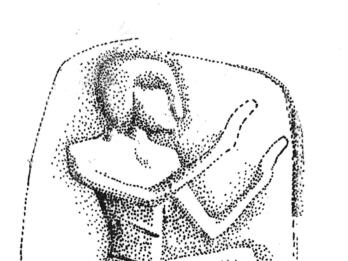Biblical Poetry
Biblical poetry is characterized by short parallel lines, without a fixed meter or rhyming pattern, and include love poems, laments over the dead, victory poems, and laments, among others.
Throughout most of the ancient Near East, poetry was the vehicle for belles lettres, and the Bible employs it for many literary genres: formal prayers, teachings about life and the world, and prophetic speeches. Blessings and curses are often in poetic form. In addition, there are love poems, laments over the dead, victory poems, lamentations for the destruction of Jerusalem, and various other types of poems.
There are a few narrative poems in the Bible, but they are celebratory or didactic rather than uninterrupted sequential narratives, and there is nothing approaching the length of Homer’s Iliad or Odyssey. In the ancient world, the Bible is distinctive in its use of prose for long narrative. Sometimes a narrative poem accompanies a prose account (e.g., Exodus 14–15; Judges 4–5). In other cases, as in the book of Psalms, narrative poems are based on prose accounts elsewhere in the Bible (e.g., Psalms 105, 106). There are short poetic passages embedded in prose narratives, such as Genesis 7:11b; 9:6; 25:23; 27:28–29, and in other places. Biblical authors also drew on an earlier work, no longer extant, called the Book of Jashar, quoted in Joshua 10:12–13 and 2 Samuel 1:18, which contained poetry (or was perhaps entirely poetic).
What are the main features of biblical poetry?
Biblical poetry, and ancient Near Eastern poetry more broadly, is characterized by short lines of roughly similar length, usually occurring in pairs or triplets that are parallel in their ideas and/or their grammatical structure. This parallelism creates a rhythmic effect, especially pleasing in oral performance. There is no fixed meter or rhyme, although assonance and wordplay are common. In addition, because parallel lines are rarely exactly the same, they move the poem forward, elaborate more intensely upon a thought, or expand its scope. For example, Jael gives Sisera, the commander of an enemy army, a drink. The prose account in Judges 4:19 is the following:
He said to her, “Please let me have some water; I am thirsty.” She opened a skin of milk and gave him some to drink. . . .
Compare it with the poetic account in Judges 5:25:
He asked for water, she offered milk;
in a princely bowl she brought him curds.
The poetic version is both more concise and more redundant. Its parallelism sets up an equivalence, a reciprocity, that brings into focus the contrast between what was requested and what was served. The phrase “in a princely bowl she brought him curds” does not add a new action to the sequence but returns to the milk, both stressing its “dairiness” (as opposed to water, which is what Sisera requested) and suggesting that it was served in Jael’s best china, as if she were honoring her guest (in the next verse, she kills him by driving a tent peg through his head). The prose version carries the reader step by step along the narrative sequence, playing out every step chronologically, as in a video, whereas the poetic version captures a single moment in a snapshot, freezing the action and also highlighting the important features and omitting less significant details.
Other rhetorical devices in poetry, which also occur in prose but to a lesser degree, include repetition, metaphor, refrains, wordplay (repeating the same word or verbal root), soundplay (repeating the same or similar consonants), and frame composition (beginning and ending the poem with the same or a similar topic or phrasing). Wordplay and soundplay are often lost in translation. All these devices combine in multiple ways to appeal to the ear as well as to the mind—they contribute to the sense of structure, to the imaginative expression, and to the aesthetic experience. It is thought that some poetry, like psalms, was recited to musical accompaniment, although the details of this practice are lost.
What types of poems does the Bible contain?
Poems are sometimes, but not always, identified as such. Some are labeled shir or shirah (“song, poem”) or mizmor (“song, psalm”) or kinah (“lament”), in addition to other terms; many poems bear no identifying label. In the later scribal tradition, some poems are written stichographically—in verselike format, wherein poetic lines are separated by patterned spaces —but many are indistinguishable from prose in their format. Modern Bible translations tend to write the passages they consider poetic in stichographic form, even when the ancient manuscripts do not; this is especially true for classical prophetic speeches.


